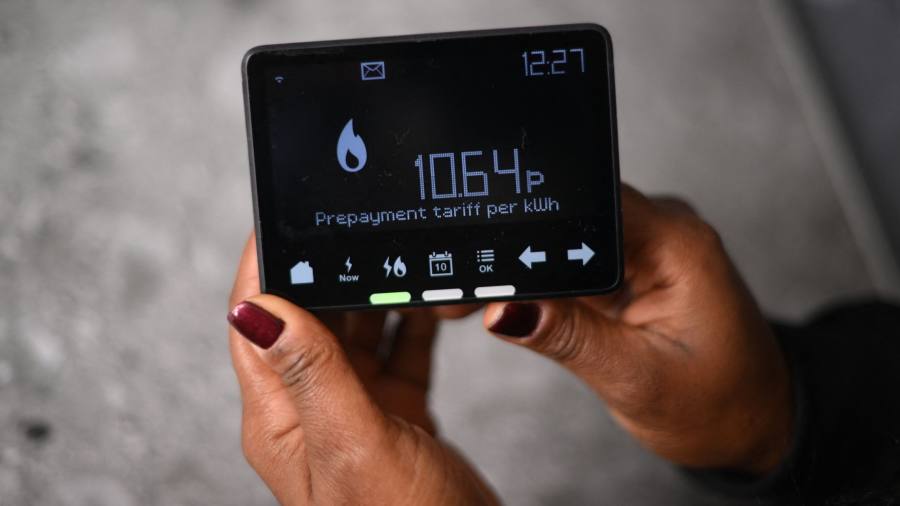
Receive free UK energy updates
We’ll send you a myFT Daily Digest email rounding up the latest UK energy news every morning.
It is one of the UK’s most expensive infrastructure projects, is years behind schedule and is expected to exceed its initial budget.
That description could admittedly apply to practically any public works scheme in Britain. The country has a poor record of delivering projects such as the High Speed 2 rail line on time and to budget.
But the £13.5bn-plus smart energy meter programme is now running four years behind schedule and will not complete for another two years at least. It flies beneath the radar compared with flashy construction schemes. Yet given its costs and importance for Britain’s future energy system, it needs urgent attention and fresh policies to push it over the line.
Smart, or digital, electricity and gas meters have multiple benefits. They provide automatic readings to energy suppliers. They allow households to track daily usage much more easily.
Crucially, they can help electricity grid operators to predict peaks and troughs in demand more accurately. The meters can also prompt businesses and homeowners to shift more consumption outside peak hours. That would reduce the need to install more power generation and grid capacity as demand rises.
Smart meters showed their worth this winter when they helped avert blackouts. A National Grid scheme paid households fitted with the devices to cut their electricity consumption during periods when there was a risk supply would not meet demand.
The smart meter rollout programme is, however, a mess.
The UK government announced in 2008 that energy suppliers would be responsible for fitting smart meters. Fifteen years later, slightly more than 32mn of the more than 57mn meters in UK homes and small businesses are smart devices. The government initially estimated it would cost £13.5bn for energy suppliers. Companies would recover their costs via customer energy bills and deliver £19.5bn in benefits. Those estimates were in 2011 money and do not account for recent high inflation. The National Audit Office believes both figures are out of date.
The problems with the smart meter rollout have been many and varied. Some early models stopped working. Others displayed false and very high readings. They are not suitable for certain areas and buildings where there is poor mobile coverage. The list goes on.
Ministers wanted the programme to complete in 2019. Even before the pandemic, the government admitted the finish date could be as late as 2024. Earlier this year, ministers consulted on revised targets for suppliers to install meters in at least 80 per cent of homes, and 73 per cent of small businesses, by the end of 2025.
There is some good news. A recent NAO report found that suppliers and the government had made some progress in addressing many of the early challenges. Even so, some problems persist; an estimated 3mn smart meters were not operating in smart mode as of the end of March.
Those in charge of smart meter programmes at energy suppliers think even the revised targets are unrealistic.
Households that are inclined to make the switch have mostly already done so, they say. They are now faced with trying to persuade sceptical households or those that have yet to even engage with their inquiries.
Adding to these difficulties, some smart meters will need to be updated when 2G and 3G networks are phased out in the early part of next decade.
High energy costs offer opportunities to speed the process up. Suppliers must try to build on the interest generated by the successful National Grid scheme over the winter. Energy companies will increasingly be able to offer households with smart meters tariffs that are cheaper if energy is used off-peak.
For their part, ministers must consider tougher policies. Smart meters should be made a requirement for all new homes. Remarkably that is not the case. They could also change the rating system for energy performance certificates to include smart meters, which could tempt homeowners seeking to sell their property.
A fresh burst of energy and ideas is long overdue to complete a vital project for cutting electricity use and preparing for a future with less gas.